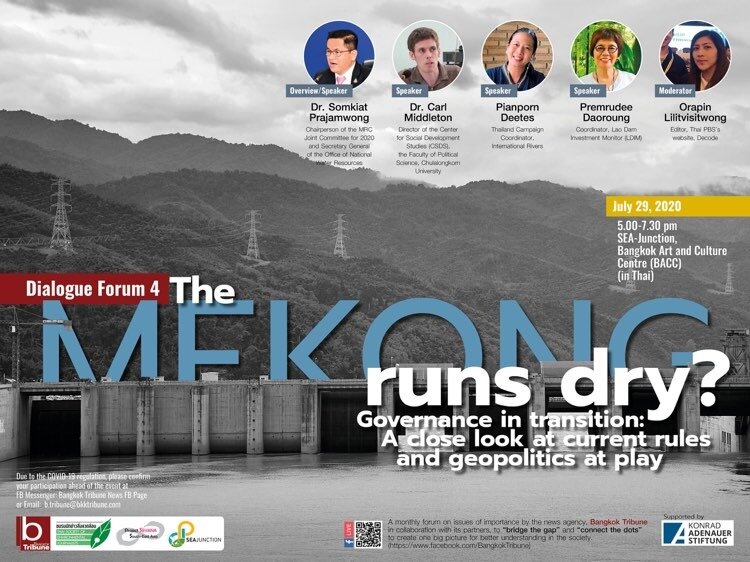UPCOMING EVENT: A Bridge Over Troubled Water: Anticipating and Reimagining the Future of Rivers in Southeast Asia [Online, 4 March 2022]
/A panel for the International Conference of Chulalongkorn University’s Futures Literacy Week
10:45 – 12:15, Friday 4th March 2022 [Thailand time]
Rivers hold diverse meanings, values and relationships to people in Southeast Asia. They are defining features of the region’s geography, the lifeblood of diverse ecosystems, and a dynamic constant that pattern livelihoods with their seasonal cycles. The region’s rivers have historically been interwoven with a diversity of cultures, lives, and river-dependent livelihoods across the region. They have also been valued locally and globally for their remarkable biodiversity. In recent decades, rivers have been transformed by accelerating processes of economic modernization with the construction and operation of large-scale water infrastructure including irrigation schemes and large hydropower dams as human demand for water for agriculture, industry, hydroelectricity and domestic consumption has grown. This water infrastructure has changed seasonal and daily river hydrology, fragmented and degraded ecosystems, and had impacts on pre-existing livelihoods. Large-scale water infrastructure has progressively transformed river basins at the local to basin-wide scale, bringing benefits to some and harm to others. Simultaniously, there are also diverse practices on sustaining river-dependent livelihoods and protecting and recovering (or rewilding) ecosystems. In this context, there continues to be intense debate from diverse perspectives on the value and use of rivers in Southeast Asia for the present and future, with implications for social and ecological justice.
This panel will address the following questions: What are the possible futures for the region’s rivers? Who benefits and who loses out in each of these futures? Which ones are most desirable? How could desirable futures be attained?
Register here.
Panelists;
Chol Bunnag, Assistant Professor and Director, Sustainable Development Solutions Network (SDSN) Pianporn Deetes, Thailand and Myanmar Campaigns Director, International Rivers Saw John Bright, Water Program Manager, Karen Environmental and Social Action Network (KESAN) Raymond Yu Wang, Associate Professor, Center for Social Sciences, Southern University of Science and Technology Tarek Ketelsen, Director General, Australia – Mekong Partnership for Environmental Resources and Energy Systems (AMPERES) Yong Ming Li, Fellow, East West Center
Moderator;
Carl Middleton, Director, Center for Social Development Studies, Faculty of Political Science, Chulalongkorn University
Learn more about Chulalongkorn University’s Futures Literacy Week here.










